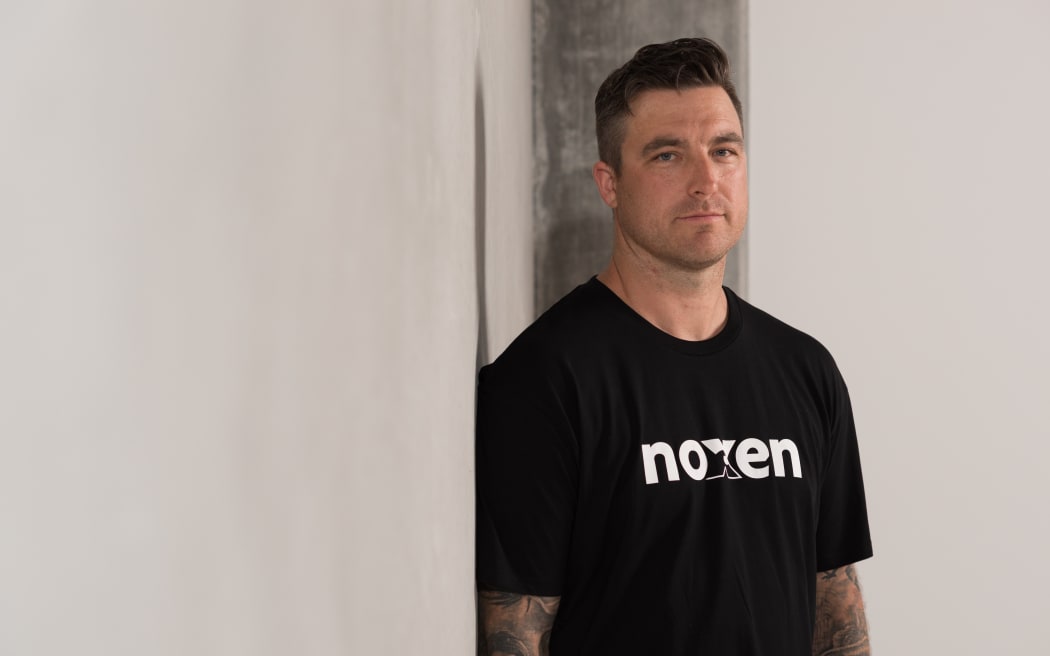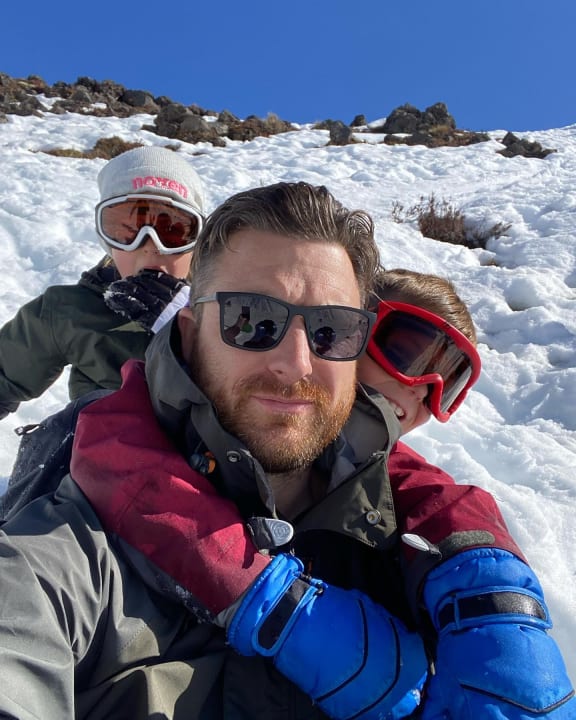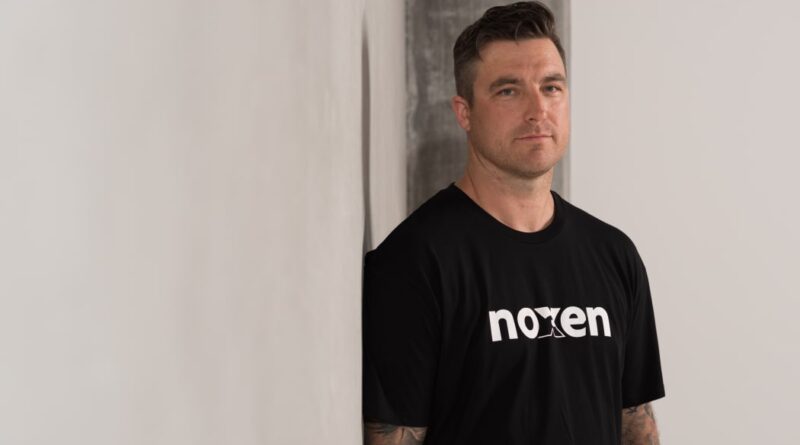Can you get ketamine for depression in New Zealand?

Todd Hilleard uses prescription ketamine to treat depression.
Photo: provided
Warning: This story deals with issues of suicide and depression
Todd Hilleard tried half a dozen different antidepressants before turning to prescription ketamine.
Nothing changed the intense depression and overwhelming suicidal thoughts that began in 2010 after Hilleard responded to an incident as a police officer. He tried to take the gun from a woman’s head and told her to shoot him.
The Christchurch earthquake where he was a first responder felt an additional strain on his mental health.
“My body went into a constant fight or flight response,” he said, after 12 hours spent digging up survivors of the earthquake.
Now, 14 years later and after six months of taking a capsule of ketamine that is released slowly after a few days, Hilleard’s depression has begun to lift. The attack of suicidal thoughts is eliminated unless he is specifically motivated.
“I’m grateful to be in this because I’ve tried everything,” said Hilleard, a small Papamoa businessman and father of two. “The anecdotal evidence is that it works for me and I don’t think it’s anything to be afraid of.”
Hilleard’s success with ketamine is possible thanks to Anteris, the only clinic in New Zealand willing to offer ketamine for mood disorders despite mounting evidence that the drug can quickly and safely treat so-called treatment-resistant depression.

Todd Hilleard and his two children.
Photo: provided
Ketamine is now a commonly used drug in New Zealand’s emergency departments and operating rooms as well as in veterinary clinics. However, it is best known as the party drug “Special K” which was at the center of the death of actor Matthew Perry last year.
The Friends Star was using the drug to treat depression but an autopsy revealed that she had been illegally injecting herself at home. So far, five people have been charged in connection with his death.

Matthew Perry died of “adverse effects” from ketamine in 2023.
Photo: Chris Delmas/AFP
Anteris, in Tauranga, is run by Dr Caleb Armstrong, a psychiatrist who believes ketamine should be widely available to the 100,000 New Zealanders who do not respond to standard treatment for depression.
“Some people go from being severely disabled by depression to having no symptoms in a few months,” Armstrong said, noting the 60 percent success rate of ketamine with depression. Untreated feelings, depression that did not decrease after the tests at least. two different antidepressants.
Medsafe has approved ketamine as an off-label drug for depression. The clinic currently works with around 80 patients and has treated around 300 people since it opened in 2017.
Anthony, a 38-year-old patient of Armstrong’s, described prescription ketamine as “psychological recovery” after years of depression.
“I was lacking motivation, unable to have any pleasure, having suicidal thoughts every now and then,” said the Auckland resident who works in public health.
Anthony said he doesn’t mind the short-term psychedelic side effects that can be dangerous for some patients (but are sought after by illegal drug users). He took it without changing for about a year and now only takes it when he feels he needs it.

Dr. Caleb Armstrong
Photo: provided
“Ketamine is almost in a different place where drugs of abuse like fentanyl, people take it and become addicted quickly,” Armstrong said.
“What we see with ketamine is the opposite. They get used to the side effects but after a while they want to take it more often or reduce the dose.”
Common antidepressants take weeks to work where studies show that ketamine can have an effect within 24 hours.
It does this by increasing the brain’s ability to form new connections, according to a 2019 study from the University of Auckland, which added to the pile of new evidence supporting ketamine’s effectiveness.
However, the long-term benefits and side effects as well as the effect of ketamine on adolescent brain development are still unknown.
So, why are so many medical professionals in New Zealand unwilling to provide it? Armstrong believes there is a lack of awareness and confidence in the mental health community about ketamine.
Armstrong, who went to medical school at the University of Auckland, first encountered ketamine in emergency rooms where it was used safely as an anesthetic, including in children.
He became a psychiatrist in 2012 and found mentors in Australia, where ketamine is widely used for depression, to help him set up his clinic in Tauranga.
The US approved ketamine as a treatment for depression in 2019. There are now hundreds to thousands of day clinics offering services such as intravenous infusions as well as luxe residential programs.

Professor Paul Glue of the University of Otago.
Photo: It is given
Professor Paul Glue of the University of Otago, who studies ketamine, believes New Zealand psychiatrists are growing in their understanding of the drug’s benefits but don’t know who is prescribing it.
Glue said he met Armstrong a few years ago when he was preparing to open Anteris and called him “a quality psychiatrist”.
Another factor preventing greater access to ketamine for depression is cost, which Pharmacy does not provide.
The first three months of treatment at Anteris, a private clinic, is $7500, including an initial examination, monitoring to find the right dose and medication. That is slated to go up to $9500 so patients can also get treatment along with their ketamine.
“It helps us to fully help someone within three months,” Armstrong said.
Patients must travel to Tauranga for their first appointment and leave with a month’s worth of ketamine. The dose is then monitored through regular phone calls and emails with the clinic and reduced or increased as necessary. The clinic works with a compounding chemist to make the capsules, which are sent monthly to patients using special courier services for about $100 to $200 a month.
“It costs a lot of money. I’ve been very lucky that my family supports me financially,” said the 28-year-old woman from Auckland, noting that an appointment to follow Armstrong is close to $300.
(Obviously, the Anteris system needs improvement. The clinic has two star ratings on Google, although many reviews criticize the management side and praise the mental health treatment).
The social stigma that ketamine is a party drug is also unhelpful. “People think you’re getting high without realizing there’s a therapeutic use for it,” said the Auckland woman, who works in commercial areas.
He ended up taking ketamine for about a year and no longer needed it. “I think it’s a very viable option,” he said.
#ketamine #depression #Zealand
